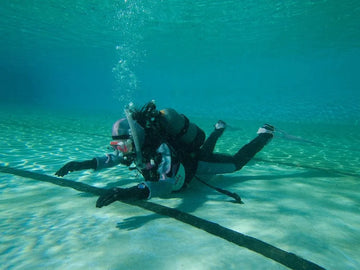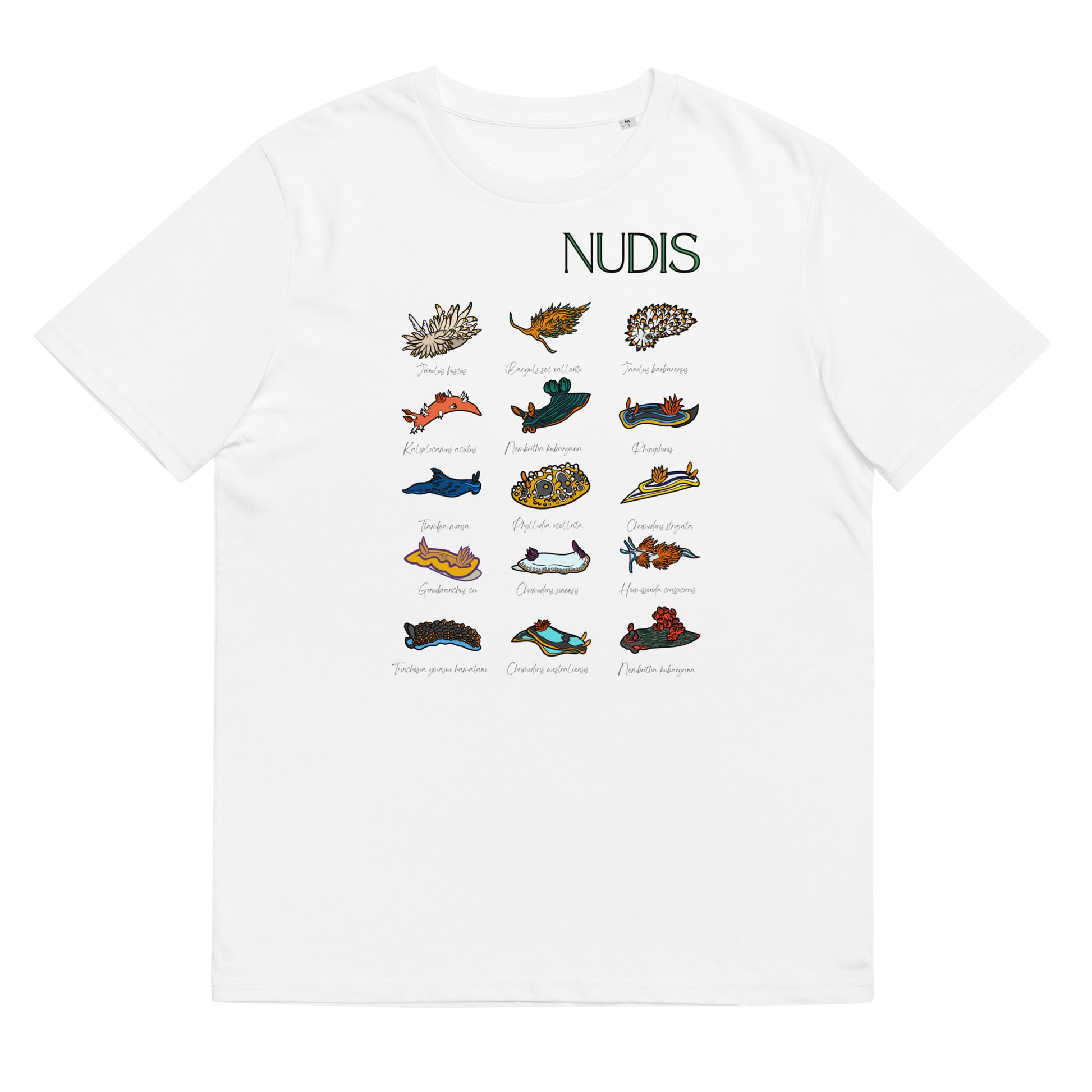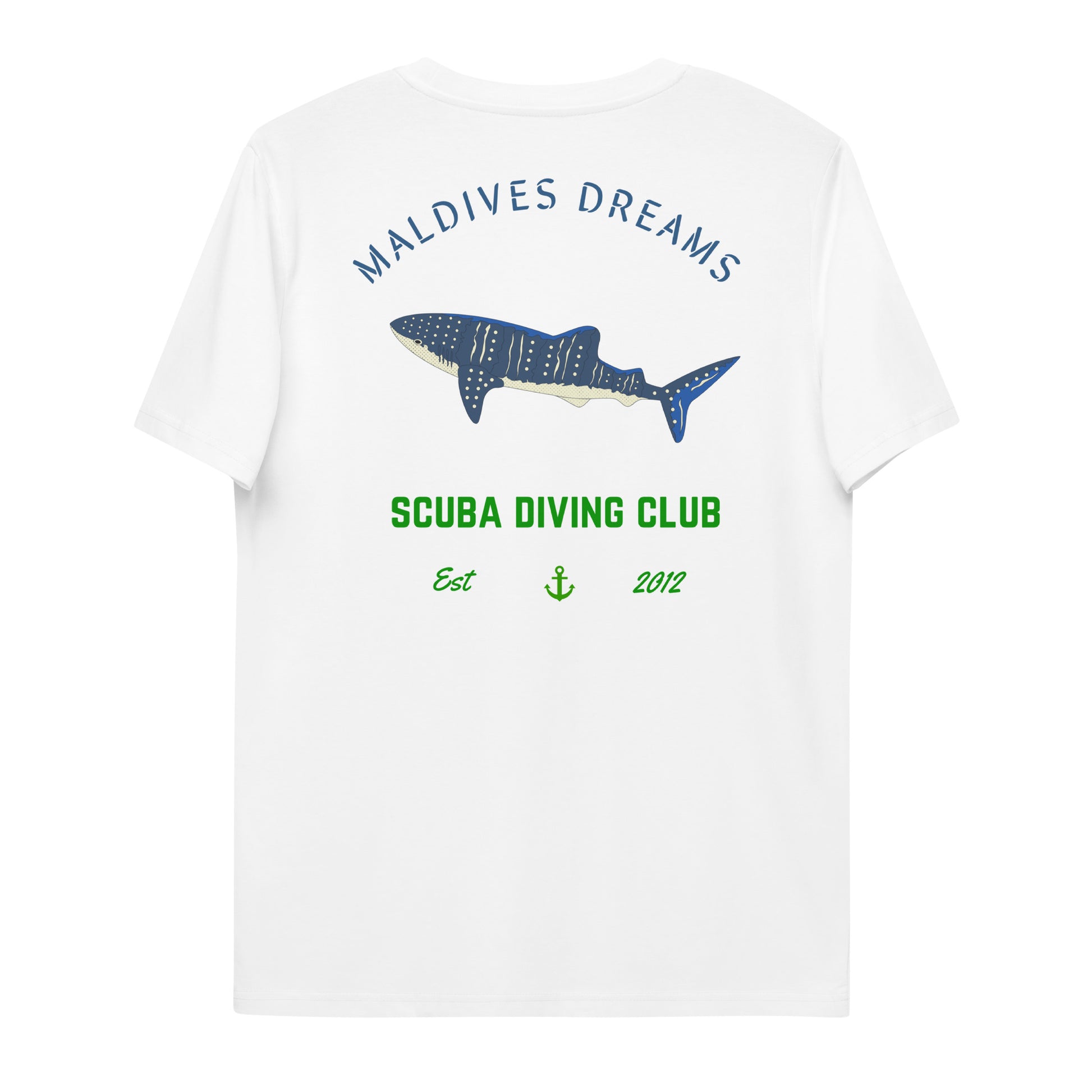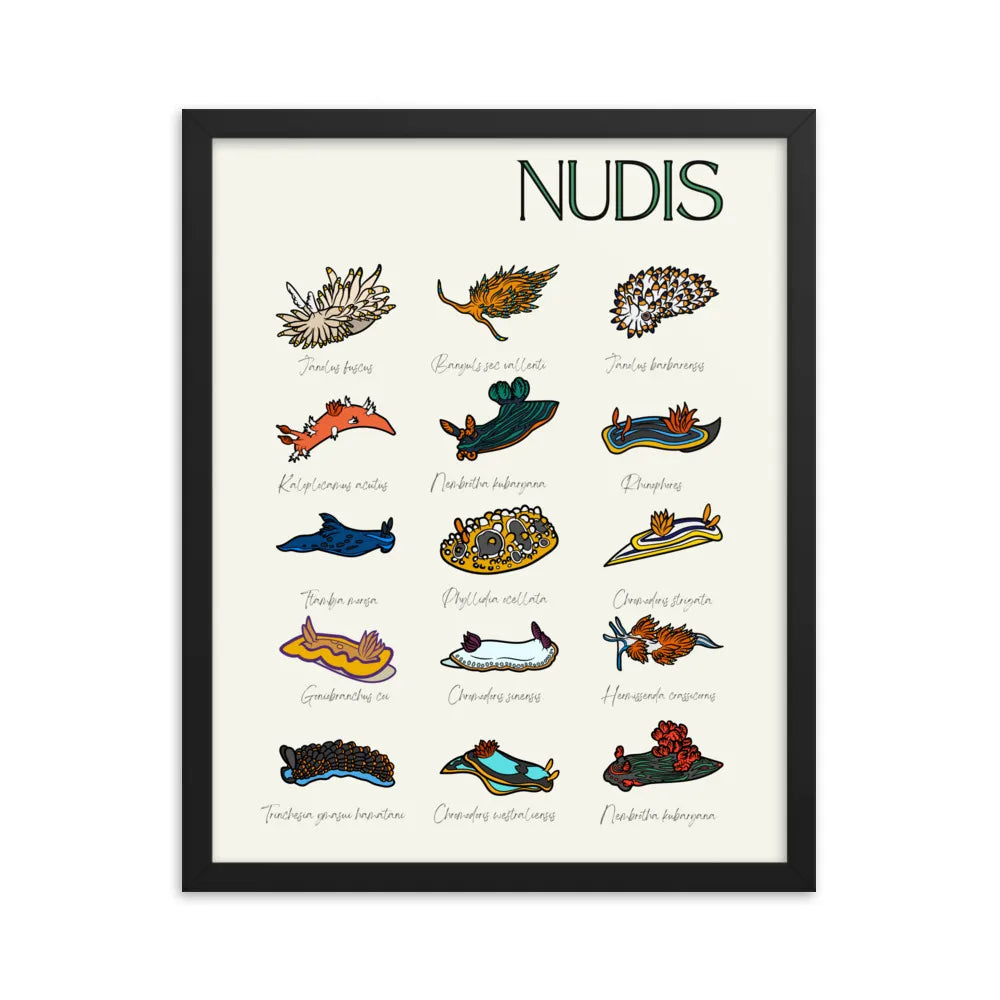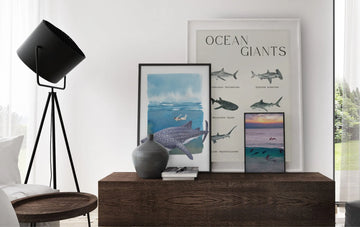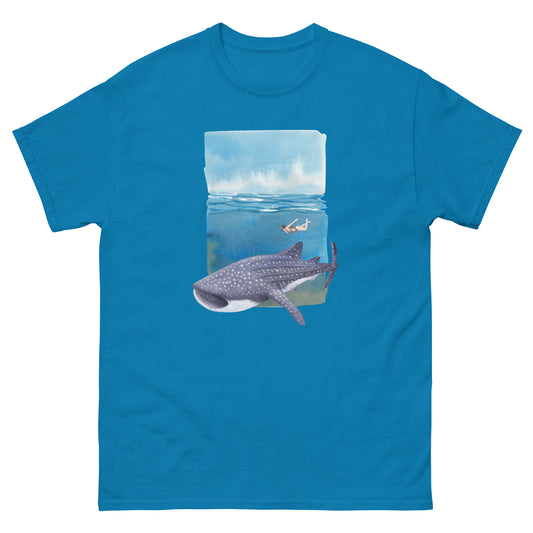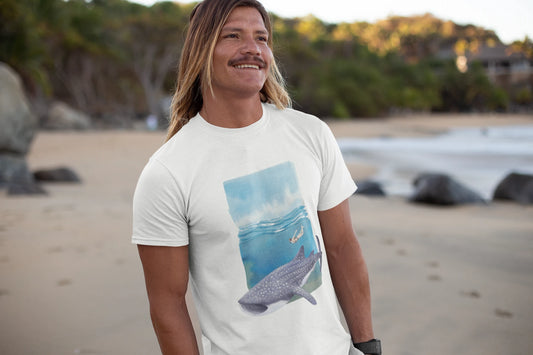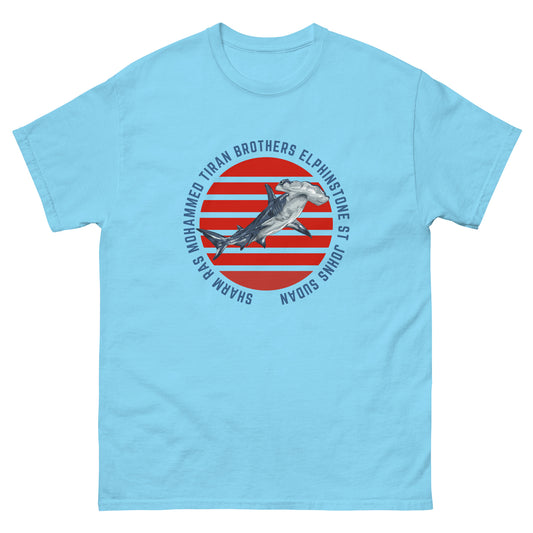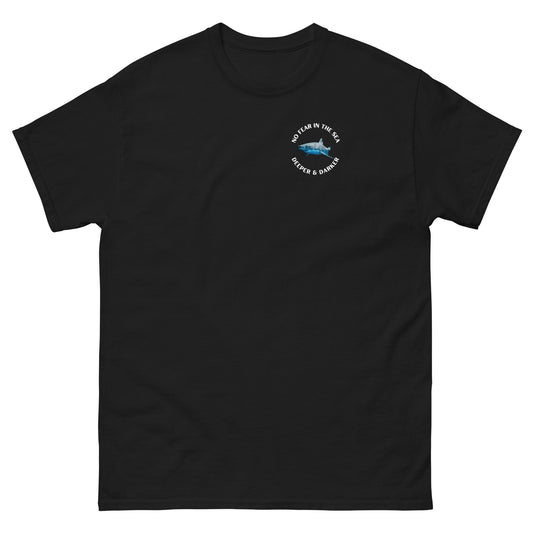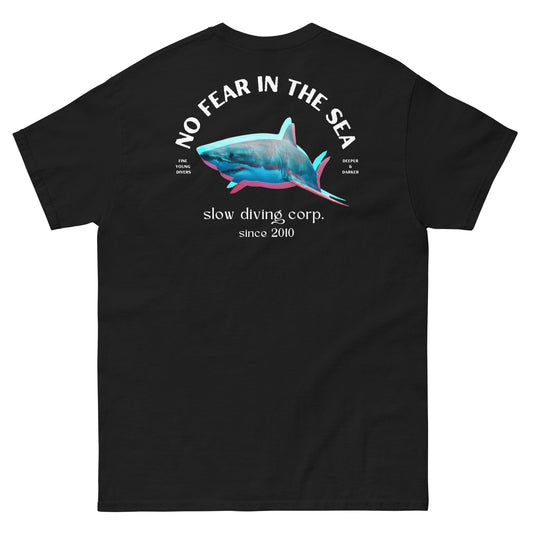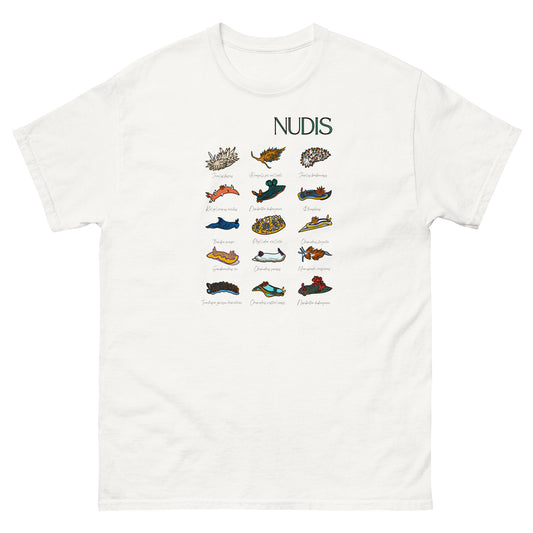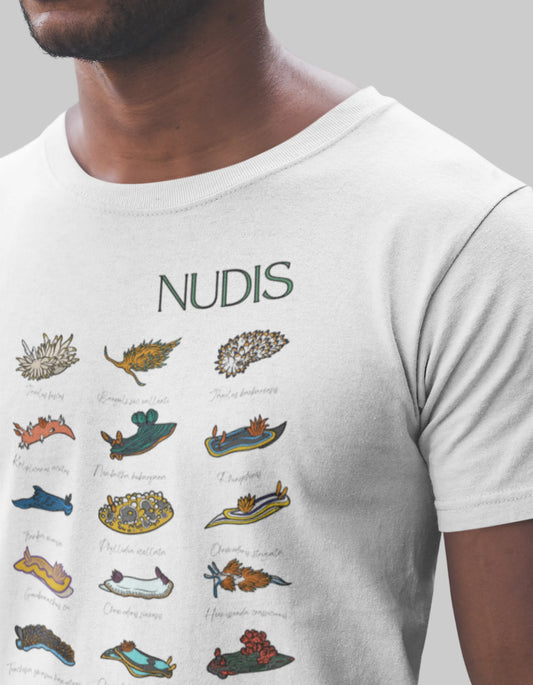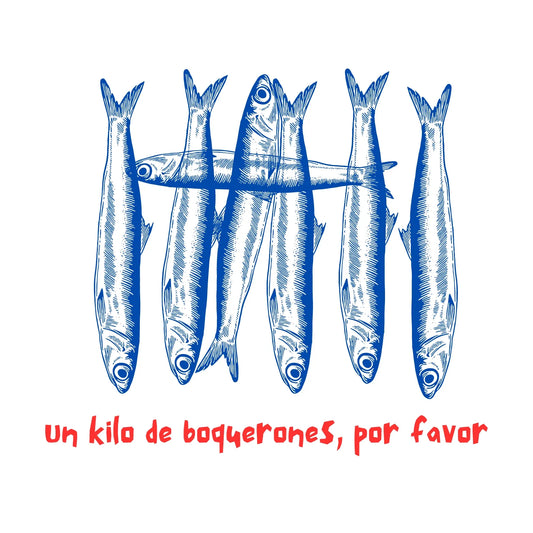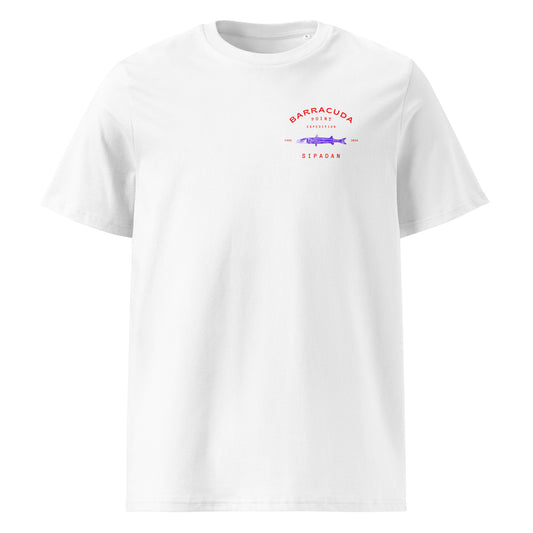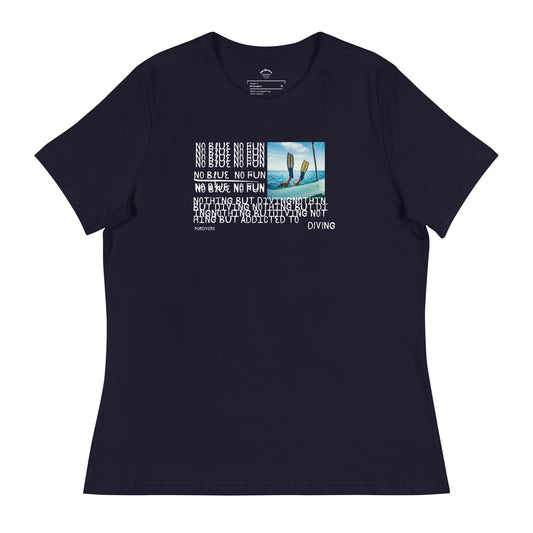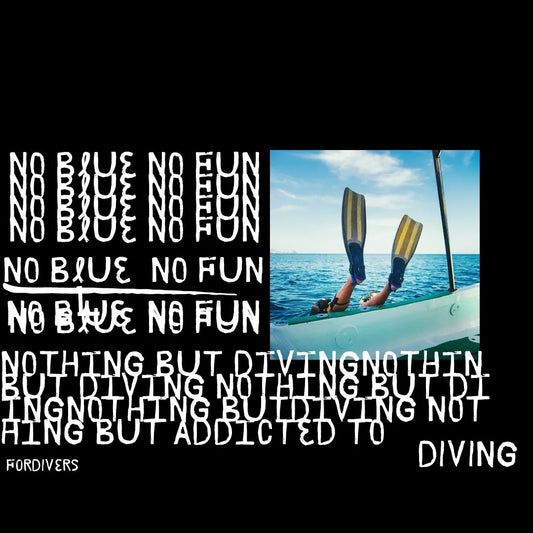For most divers starting out in this sport, the first dives can be a bit stressful: you have to be aware of different accessories that you do not yet control, in an environment that is not your own, trying to compensate, descend slowly, maintain buoyancy, stay close to your buddy… all this trying not to drown and with the unrepeatable thrill of the first dives.
As these first moments are often not easy, here are 10 simple tips for all of us who are learning to dive to make each dive better and more comfortable than the last.
1. USE THE SNORKEL IN EVERY DIVE
At the beginning, mostly because of excitement and nerves, we tend to use a lot of air from our tanks and shorten our dives more than we would like. While you are waiting for the other divers to descend the cape or if you are going from the shore to the dive site, use the snorkel with you. This way you will save air for the dive, you will have one less worry and you will be more relaxed to start the dive.
T-shirts designed by divers for divers
VIEW MORE T-SHIRTS FOR DIVERS
2. BUY A DIVING MASK THAT FITS PROPERLY

It is not advisable to dive with a rented mask unless it is new. It has probably been used by many other divers before you and it will be easier for it to fill up with water and you will be constantly emptying it.
Look for a good diving mask, compare, ask, test and buy it where you can get it cheapest. Once you get the mask that best suits you, you will have one less worry underwater. Here we tell you about the different types of diving masks that exist and in this link we offer you some extra tips to avoid fogging.
3. WAIT UNTIL YOU GET TO THE DIVE SITE TO PUT ON YOUR WETSUIT
If you get hot easily, put on your wetsuit completely at the last minute, when you have reached the diving area. In short, leave the upper part of the wetsuit on.
The first time I put on a wetsuit I did it 35 minutes before going into the sea. By the time we got there, I felt like I had spent 35 minutes in a sauna. Now I wait until I'm five minutes from the dive site.
4. DIVE WITH DIVE CENTERS THAT OFFER GUIDES
Whenever you go diving, especially on your first dives and at least until you achieve Advanced Open Water Diver certification and have dived numerous times at that dive site, confirm that the dive center or cruise ship operator provides you with a guide. Also, make sure that the guide knows your diving level and that he or she pairs you with someone who is fit to dive. Any security is too little, especially when you are learning.
5. STAY HYDRATED
Although this subject has already been discussed, it is worth remembering it. Drink enough water before diving. Always stay hydrated. An imbalance in electrolyte levels due to dehydration can cause fatigue, dizziness, nausea, confusion and weakness, all of which are not desirable while diving.
Hoodies Designed for the Deck of Your Liveaboard
SEE MORE SWEATSHIRTS FOR DIVERS
6. LEARN TO CONTROL YOUR BUOYANCY
Even if you think it is impossible to maintain the buoyancy and trim of your instructors, don't worry, one day you will get there. Little by little you will improve your buoyancy, which should be a basic goal every time you dive, almost an obsession.
By improving your buoyancy you will not only enjoy your dives more, you will also get less tired, consume less air, have less impact on the ecosystem, take better pictures and dive safer. Consider this skill as one of the most important. Don't hesitate to go to courses and practice in the pool or open water to improve it.

7. JOIN A DIVE CLUB
Although we all come from the ocean, none of us were born knowing how to dive. The only way to learn is by practicing and asking questions. Don't hesitate, join a club in your city or area where you are going to spend the summer and you will see how fast you will learn. There is nothing good divers like more than teaching others with less experience.
8. KEEP YOUR LOGBOOK UPDATED
More than to write down the marine fauna you saw (which you also saw) the logbook serves to learn how to improve some skills according to the sensations you had during the dive. For example, it will tell you how much weight you feel better with or how a new accessory or configuration affects your buoyancy.
In the first dives it is convenient to rent much of your diving equipment and your logbook can help you to decide on elements of your equipment such as a jacket that you have rented, and even to discover your diving limits and how they change as you gain experience (how you have found yourself at a certain depth, on the speed of ascent or descent, difficulties to compensate in one or another position, etc.) . Every diver is different and you can find all kinds of advice on the internet, but the information on how you dive will only be found in your logbook.
9. BE A GREAT BUDDY

Sometimes you will dive with your lifelong buddy, sometimes you will dive with a complete stranger, but the most important thing is that you always strive to be the best dive buddy possible. Before getting into the water you should know some basic aspects of your buddy: diving level, health status, limits, underwater communication, equipment status… Keep in mind that being a buddy of a diver is a big responsibility, he counts on you in case he needs your help in a critical situation. In this article we tell you more about how to be a good dive buddy.
The Best Gifts for Divers - Worldwide Shipping!
SEE MORE GIFTS FOR DIVERS
10. KNOW YOUR LIMITS
Always stay in your comfort zone and never do anything that makes you feel uncomfortable, whether it is going into a cave or wreck, going down to a certain depth, diving with a buddy who is in bad conditions… Tell the group all the doubts you have about the dive you are going to do.
Again, no one was born learned and this is a hobby, nothing more. Ask yourself if it's worth getting a good scare over a hobby.

